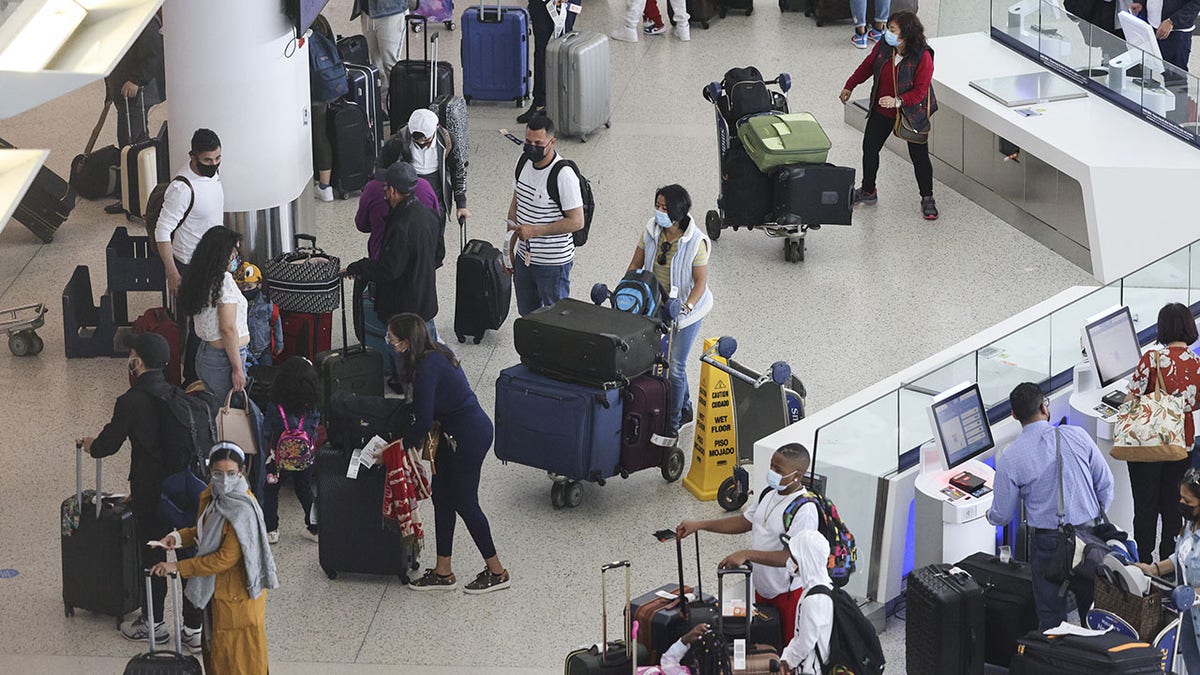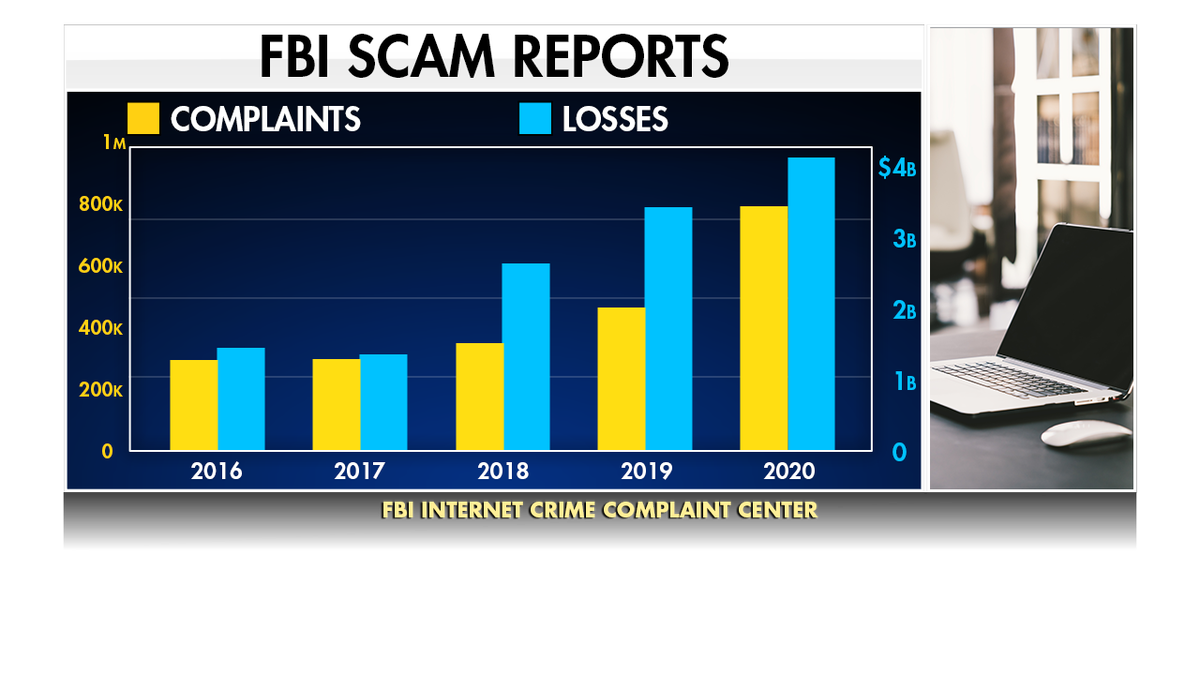Beware of travel scams
The FBI warns against becoming a victim of travel scams ahead of the holiday season.
LAS VEGAS – If it sounds too good to be true, it probably is.
That's the message the FBI is sending this holiday season to help consumers avoid falling victim to travel scams.
Brian Gibbs of New Jersey planned to visit Hallandale Beach, Florida, last year when an ad popped up on his computer for a discounted hotel.
4 SMART TIPS FOR THANKSGIVING TRAVEL
"I booked the dates, credit card taken, all of that stuff," Gibbs said. "I call up the hotel and say, 'I’m here to cancel my reservation that I have for the end of March for the week that I'm there.’ They were like, 'There’s no reservation with your name on it,' so I was like 'Uh oh.'"

Travelers wearing protective masks line up to check in for JetBlue Airways Corp. flights in Terminal 5 at John F. Kennedy International Airport (JFK) in New York City, March 26, 2021. (Getty Images)
Gibbs booked the hotel through a third-party website that he says didn’t have a phone number or email listed.
He ultimately lost out on $1,600.
RECORD $4.2 BILLION STOLEN THROUGH ONLINE SCAMS IN 2020: REPORT
This is one scenario the FBI warns people about, especially with upcoming holiday travel.
"It’s an opportune time for scammers to take advantage of people who have been cooped up for the last two years," said Assistant Special Agent Ray Johnson with the FBI's Las Vegas division.
Last year, the FBI’s Internet Crime Complaint Center received nearly 800,000 reports with more than $4 billion in losses.
That's the highest number in the last five years.

Johnson says online shopping increased significantly during the coronavirus pandemic, and so did the number of reported scams.
The FBI recommends that consumers:
- Be aware of unexpected emails and text messages. If the link looks suspicious, don’t click on it.
- Ignore robocalls.
- Research a company before booking with it.
- Pay with a credit card instead of a debit card or cash.
"I think the old adage of, ‘If it seems too good to be true, it probably is," is true, Johnson said.
HOW US TRAVEL RESTRICTIONS ARE CHANGING
Another precaution the FBI recommends is to book directly with well-known, reputable companies rather than going through third parties.
Anyone who suspects being scammed can report it to the FBI at www.ic3.gov.


